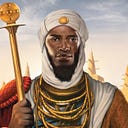
Traditional African Spirituality: Exploring Ancestral Beliefs and Practices
Africa, the birthplace of humanity, has always been a melting pot of diverse cultures, languages, and beliefs. Despite centuries of external influences and the spread of global religions, the essence of traditional African spirituality still prevails, offering profound insights into the lives of our ancestors. In this blog, we’ll take a journey through the mystical world of African spirituality, delving into its unique aspects and the practices that have been passed down through generations.
The Roots of African Spirituality
African spirituality is an all-encompassing term that refers to the various indigenous religious beliefs and practices found throughout the African continent. Although each ethnic group possesses its unique spiritual traditions, certain commonalities exist, such as a strong connection to nature, ancestral reverence, and the use of rituals for healing and growth.
At the core of African spirituality lies the belief in a supreme being, who often takes a less active role in the daily lives of people. Instead, the focus is on lesser deities, ancestors, and spirits who directly interact with the living. These entities play a crucial role in providing guidance, protection, and support, ensuring the harmony between humans and the natural world.
Ancestral Reverence and the Cycle of Life
Ancestors hold a central place in traditional African spirituality, with many cultures believing that the deceased continue to influence the living. It’s believed that the spirits of ancestors can provide wisdom, healing, and protection, and thus, they’re honored and respected in various ways.
Rituals, ceremonies, and offerings are common practices to communicate with ancestors and maintain a strong connection. These rituals often involve music, dance, and the use of sacred objects, which symbolize the link between the physical and spiritual realms.
Healing and Divination Practices
African spirituality is deeply rooted in healing and personal growth, with various traditional methods employed to help individuals achieve balance and harmony. Divination, for example, is a common practice that involves seeking guidance from the spirit world to address various life challenges.
Traditional healers or diviners, known by different names like sangoma, babalawo, or nganga, play a vital role in the community. These individuals possess unique skills in interpreting messages from the spirit world and are often sought for their wisdom and guidance. They also employ a range of methods such as herbal remedies, prayers, and rituals to promote health and well-being.
The Power of Community
Community is a fundamental aspect of African spirituality, with many practices emphasizing the interconnectedness of all life. This holistic worldview encourages a deep respect for the environment, understanding that humans are part of a larger ecosystem.
Communal ceremonies and celebrations serve as a means to strengthen social bonds and maintain harmony within the community. These events often involve storytelling, dancing, and music, enabling people to express gratitude and respect for the shared spiritual journey.
Conclusion
Traditional African spirituality offers a wealth of wisdom and insights that can enrich our understanding of the human experience. By exploring these ancestral beliefs and practices, we can appreciate the depth of spirituality that has shaped the lives of countless generations, fostering a sense of connection and unity across the African continent.
